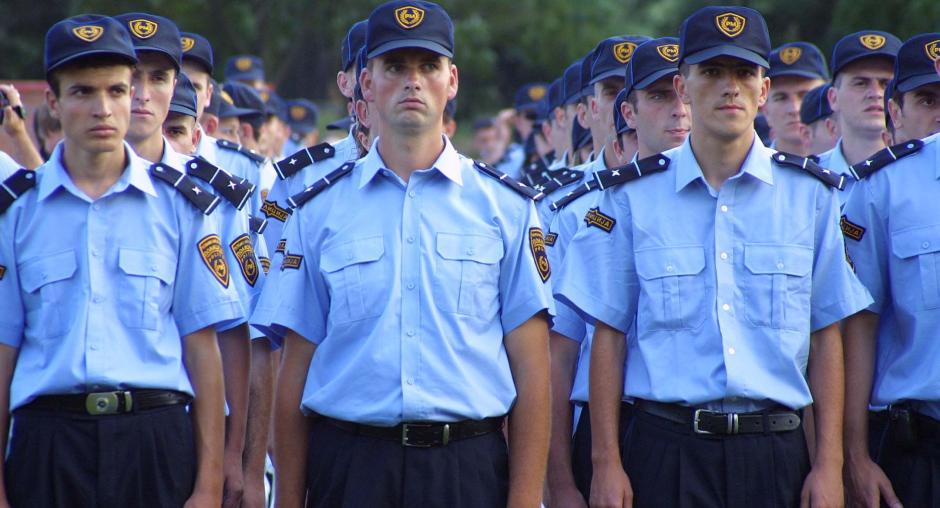Conflict prevention in action: OSCE's role in police reform
No stability without effective policing
"It is clear that without effective law enforcement and respect for the institutions of the rule of law, there can be no social, political or economic stability," says Richard Monk, the OSCE's Senior Police Adviser. "The OSCE alone has the necessary experience to tackle this head on. We have a strong field presence, the institutional influence and the broad spread of states to provide the long-term engagement required."
Clearly, the countries neighbouring Afghanistan, but also former Soviet states in the southern Caucasus are facing major problems. These often include poverty, rampant organized crime, religious fanaticism, and trafficking in weapons, drugs and human beings. In many cases, the national police forces are ill-equipped and lack the proper training to deal with serious crime.
Central Asia and the Caucasus
Since the beginning of this year, the OSCE has started to shift its focus from South-Eastern Europe towards Central Asia and the Caucasus. Steps to implement police reform projects have already been undertaken in Kyrgyzstan and Armenia. On 29 July, the OSCE and the Armenian police service signed a memorandum of understanding launching a major police assistance programme. A few days later, on 7 August, the Kyrgyz Government put its signature to a similar agreement.
"We wanted to build on our expertise and create practical police programmes that will make a measurable difference in new areas," says Mr. Monk. "For this, we bring with us invaluable experience of law enforcement from South-Eastern Europe. Especially in Croatia, Serbia and Montenegro (including Kosovo and southern Serbia) and the former Yugoslav Republic of Macedonia, we have been able to see how important it is to look from very early on at the performance of the police."
Helping fight terrorism
Police assistance is also one of the OSCE's key focus areas in the fight against terrorism. Better policing has not only the capacity to reduce crime and improve the lives of ordinary people. It can also help to curb the international spread of transnational organized crime which could undermine society in the OSCE participating States.
"Criminals are already co-operating internationally," Mr. Monk says. "Because of the mobility of crime, countries have to work together. If there is a major crime problem and a lack of internal controls in any state which is left unchecked, then it can grow into a threat to everybody in the world."
"It is vital that the international community should unite to tackle this modern scourge. The OSCE is keen to play its part."
Introducing new concepts
One of the main areas the OSCE's Strategic Police Matters Unit is looking at is the concept of community policing. This concept describes policing that is effective against major crime and at the same time responsive to a particular community's needs, which is considered crucial to promoting social, political and economic well-being.
"And there are other new concepts that we would like to introduce," says Mr. Monk. "One is proper training in interviewing victims and witnesses or interrogating suspects, which enables police officers to make maximum use of information essential to successful enquiries. If you get this right, there is no need for the aggressive or abusive treatment of detainees which is all too common in some countries."
Likewise, effective crime intelligence systems, enabling analysts to link crimes and criminals, are a cornerstone of modern police investigation techniques. Sophisticated systems help to open up additional lines of enquiry for investigating officers and provide proof for courts, removing the need to rely on interrogation and confessions.
"Finally, respect for the human rights of detainees will be a constant thread running through our programmes. Honesty, integrity and the respect of the community are vital for effective policing," says Mr. Monk.
First steps in Kyrgyzstan and Armenia
The main aims of the Kyrgyz police reform programme are to establish community policing, improve the quality of criminal investigation and strengthen the emergency response capacity of the country's police force. The programme comprises eight points:
- introducing community policing methods as a pilot project in the Pervomaisky police district of Bishkek;
- strengthening the Kyrgyz Police Academy for police recruits and refresher courses;
- improving the quality of police investigations;
- improving police capacity for drug interdiction;
- setting up the core of a national criminal information analysis system;
- strengthening police capacity to prevent conflict and manage public disorder;
- providing a radio-communications system for the criminal police; and
- strengthening the emergency response capacity with a modern and efficient emergency call response centre.
- the pilot introduction of community policing in the Arabkir police district of Yerevan;
- strengthening the Armenian Police Training Centre for police recruits and refresher courses; and
- strengthening the emergency response capacity of the Yerevan police force.

